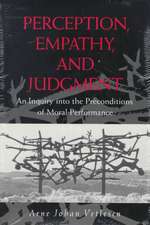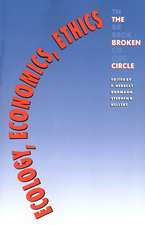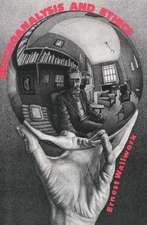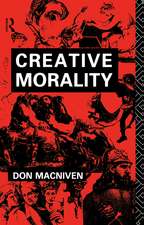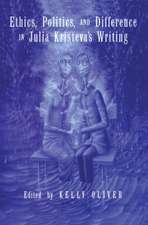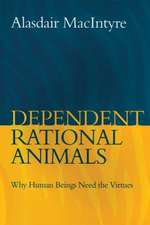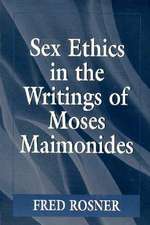Hannah Arendt’s Ethics
Autor Deirdre Lauren Mahonyen Limba Engleză Hardback – 27 iun 2018
| Toate formatele și edițiile | Preț | Express |
|---|---|---|
| Paperback (1) | 230.69 lei 6-8 săpt. | |
| Bloomsbury Publishing – 25 dec 2019 | 230.69 lei 6-8 săpt. | |
| Hardback (1) | 715.19 lei 6-8 săpt. | |
| Bloomsbury Publishing – 27 iun 2018 | 715.19 lei 6-8 săpt. |
Preț: 715.19 lei
Preț vechi: 1028.06 lei
-30% Nou
Puncte Express: 1073
Preț estimativ în valută:
136.89€ • 148.75$ • 115.07£
136.89€ • 148.75$ • 115.07£
Carte tipărită la comandă
Livrare economică 21 aprilie-05 mai
Preluare comenzi: 021 569.72.76
Specificații
ISBN-13: 9781350034174
ISBN-10: 1350034177
Pagini: 240
Dimensiuni: 156 x 234 mm
Greutate: 0.51 kg
Editura: Bloomsbury Publishing
Colecția Bloomsbury Academic
Locul publicării:London, United Kingdom
ISBN-10: 1350034177
Pagini: 240
Dimensiuni: 156 x 234 mm
Greutate: 0.51 kg
Editura: Bloomsbury Publishing
Colecția Bloomsbury Academic
Locul publicării:London, United Kingdom
Caracteristici
This book offers an entirely new direction, identifying elements of Arendt's ethics never before considered which pertain to discussions in moral philosophy - intention, moral responsibility, moral incapacity - and situates them within that context
Notă biografică
Deirdre Lauren Mahony is Adjunct Lecturer in the Department of British and American Studies at the University of Hamburg, Germany.
Cuprins
Introduction: Hannah Arendt and Ethics after Auschwitz Chapter One: Arendt, Eichmann and the Banality of EvilChapter Two: Thinking and EvilChapter Three: Evil and Living with OneselfChapter Four: NonparticipationConclusionBibliographyIndex
Recenzii
Arendt's thinking of ethics is at the forefront of our minds today. This is a work deserving of that thinking. Arendt's writings on judgment after the Shoah warrant our deepest reflections, and this book does that and more. It is a must-read for anyone concerned with how to think through our notions of selfhood and about evil today. The amazingly clear book brings you to leading-edge thinking about what ethics means in these times.
Sympathetic but skeptical, rigorous without being arid or inelegant, this careful exposition of the moral philosophy of one of the twentieth century's intellectual giants is both a lesson on Arendt's theory of thinking and an exercise in thinking for ourselves.
An excellent read both for specialists and the curious, Deirdre Lauren Mahony's book does a much-needed work of synthesis across a broad range of Arendt's writing, drawing out from beneath the abundance of political-theoretic interpretations of Arendt a cogent and persuasive interpretation a strong individual ethics in the background of Arendt's engagements. Centering the problem of evil as Arendt's ethical lodestone, Mahony succeeds in drafting a map of Arendt's normative terrain that stands out in its novelty and interpretative incisiveness in an otherwise increasingly crowded field.
Sympathetic but skeptical, rigorous without being arid or inelegant, this careful exposition of the moral philosophy of one of the twentieth century's intellectual giants is both a lesson on Arendt's theory of thinking and an exercise in thinking for ourselves.
An excellent read both for specialists and the curious, Deirdre Lauren Mahony's book does a much-needed work of synthesis across a broad range of Arendt's writing, drawing out from beneath the abundance of political-theoretic interpretations of Arendt a cogent and persuasive interpretation a strong individual ethics in the background of Arendt's engagements. Centering the problem of evil as Arendt's ethical lodestone, Mahony succeeds in drafting a map of Arendt's normative terrain that stands out in its novelty and interpretative incisiveness in an otherwise increasingly crowded field.

